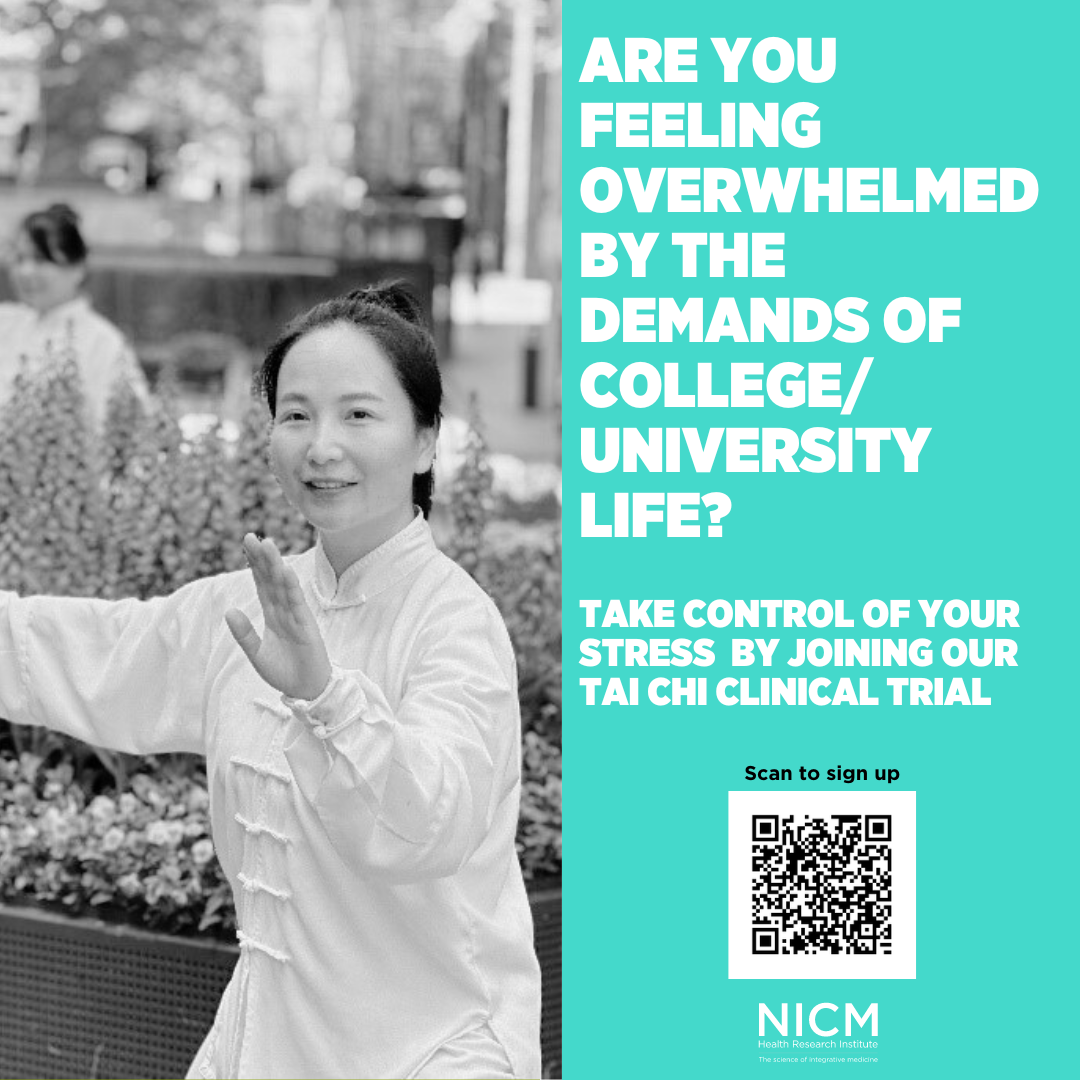Tai Chi-based stress reduction program for higher education students
Project summary
Researchers from Western's NICM Health Research Institute have co-designed a Tai Chi-based Stress Reduction program for higher education students with health professionals, Tai Chi instructors, and students. A pilot randomised controlled trial will be held to explore the feasibility, effects, and cost-effectiveness of the stress reduction program in reducing stress, anxiety, and depression among students. Tai Chi is a mind-body exercise that combines martial arts movements, meditation, deep breathing, meridian theories, and yin and yang theories to promote relaxation, harmony, inner peace, and improve overall health and wellbeing.
Why participate?
- Learn practical self-care stress management techniques.
- Receive guidance from experienced facilitators and instructors.
- Enhance your mental health and overall wellbeing.
- Contribute to cutting-edge research in stress reduction.
Who can join?
Students who are (1) aged over 16, (2) undertaking tertiary or higher education, (3) have elevated levels of stress-, anxiety-, or depression-related symptoms OR experiencing a depressive or anxiety disorder, (4) possess a computer or tablet with internet connectivity, and (5) are willing and able to give written informed consent.
Chief Investigator
Researchers
- Associate Professor Carolyn Ee
- Dr Erin Mackenzie
- Associate Professor Janet Conti
- Dr Md. Nazmul Huda
- Associate Professor Marcus Henning
- Associate Professor Albert Yeung
- Associate Professor Byeongsang Oh
- Dr Moin Uddin Ahmed
- Dr Emily Hielscher
What does participation in this research involve?
- Read the participant information sheet and provide consent.
- Take a demographic and medical history survey.
- Attend two mental health workshops on campus.
- Join an 8-week Tai Chi class tailored for stress reduction.
- Participate in interviews before and after the study.
- Conduct tests about your health and wellbeing before and after the study.
- Online groups are available if you can only join the project remotely.
More information
- Program flyer (PDF, 5323.04 KB) (opens in a new window)
- Project website
For further information, please contact Dr Guoyan Yang
Human Research Ethics Committee approval number: H15903
Mobile options:


